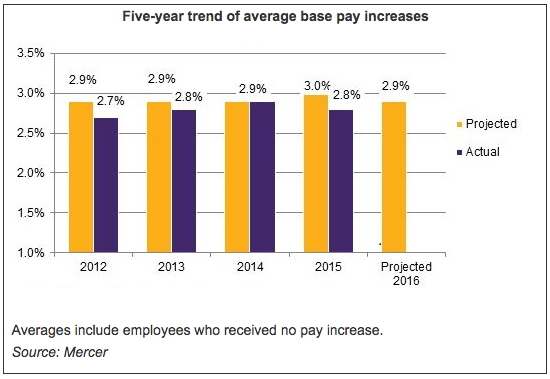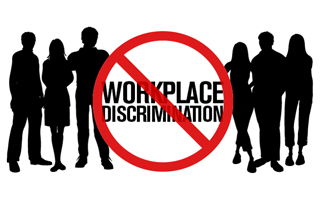
by Dr. Di Ann Sanchez | Feb 22, 2016 | HR Trends
Experts in Business (Future of Work Symposium) have several predictions for the next few years that may change the face of the workplace. Here they are:
- Technology – will be positive for business because it facilitates communication and collaboration on a daily basis. This can result in a more engaged and productive workplace.
- Freelancers – the rise of the contingent workforce will change the old employer-employee relationships. Freelancers will work the “gig economy” to build skills and experience while determining whether they are interested in a company employment situation. People are looking to supplement their incomes, consider themselves entrepreneurs and are searching for flexible work arrangements. In fact, according to a study by Elance-oDesk, Freelancing in America: A National Survey of the New Workforce, 53 million Americans are now freelancing. And 69 percent say technology is aiding their ability to do so.
- Business intelligence – currently 39% of organizations are doing some form of business intelligence analytics. Data-driven insights are imperative for organizations to remain competitive.
- Emerging economies – Asian and Middle Eastern markets continue to increase, and global talent will be a shortage due to the aging workforce. Companies will be looking to upskill workers to maintain competitive advantage, and those skilled employees can expect to see wages rise as talent shortages in certain regions drives salaries up.
- Millennials – the Gen Y factor is a live and well. It is anticipated by 2020, 50% of the Global Workforce will be Millennials. This will change the face of the workforce and well as the markets. The Gen Y’ers are already changing the workplace but will do so by the sheer momentum of their numbers.
- Leadership – leaders have traditionally been selected based on experience, company knowledge, and loyalty. This will not be the 21st criteria for organizations. Organizations are looking for more inspirational and collaborative leaders. Leaders will be expected to communicate (both in person and through technology) more with employees and have less hierarchal management style.

by Dr. Di Ann Sanchez | Feb 12, 2016 | DAS HR Consulting Company News, HR Compliance, HR Trends, Human Resources
The Results Are In For 2016! Just in Time for Valentine’s Day. Vault conducts an office romance survey every year, and the results are always surprising. Only 6% of respondents believed that NO office romances were appropriate. Furthermore, co-workers have opinions...

by Dr. Di Ann Sanchez | Feb 1, 2016 | Human Resources, Talent Management
According to Mercer’s 2015/2016 U.S. Compensation Planning Survey, the average salary increase budget is expected to be 2.9 percent in 2016, up slightly from the average increase budget of 2.8 percent in 2015.
The survey includes responses from 1,504 midsize and large employers across the U.S. and reflects pay practices for more than 17 million employees.

by Dr. Di Ann Sanchez | Jan 24, 2016 | HR Compliance
The Department of Labor’s (DOL) proposed changes to the overtime regulations under the Fair Labor Standards Act (FLSA) but have not been officially approved by the President. In the meantime, please review the list below to prepare for what may lie ahead:Significant...

by Dr. Di Ann Sanchez | Jan 3, 2016 | Human Resources
Small employers (those with fewer than 50 FTEs) with a self-insured health plan must complete and file Forms 1095-B (Health Coverage) and 1094-B (accompanying transmittal form) with the IRS, as well as provide employees—specifically, those who are taxpayers...

by Dr. Di Ann Sanchez | Jan 2, 2016 | HR Compliance, Human Resources
Click here to download the 2016 IRS Form W-4.

by Dr. Di Ann Sanchez | Dec 20, 2015 | HR Trends
The Hispanic Millennial Project (HMP) is a massive five-part study co-produced by market researcher ThinkNow and ad agency Sensis found Latinos Millennials are the most valuable segment of TV watchers in the millennial generation!
The Research found some interesting facets of millennial Latinos that make them a uniquely valuable group of TV watchers.
While non-Hispanic white millennials still drive the box office, with an even third having watched a movie in a theater in the past six months, Latino millennials are right behind them, with 30 percent reporting the same. But when it comes to TV, millennial Latinos are by far the main driver of the most valuable kind of activity: watching it live.
Of all the millennial groups (White, Black, Latino, and Asian-American) studied by HMP, Latinos were the most likely to watch live television sometimes, and also as a regular habit.

by Dr. Di Ann Sanchez | Dec 13, 2015 | Talent Management
Why do Millennials hate the performance review system?
The short answer is lack of explanation of the company process and no follow through with the elements required to make the process successful!
In order to actually motivate Millennial employees to perform their best, a performance management system should be timely and tied closely to organizational and personal goals. Timeliness to Millennials means daily or weekly meetings with their manager to stay continually on the same page. Those meetings should include career development discussions.
Here are 5 of the biggest mistakes employers make with the Performance Management Process and the Millennial employees!
- Not Giving the Millennial Employees Timely Feedback
If the only time a Millennial hears how s/he is performing is once per year, there are bound to be surprises to the employee. Many managers use the existence of a performance management system as an excuse to delay giving feedback until the formal review period. Once a year or even semi-annual feedback is a Millennial disaster. In other words, there should be no surprises at that time if the Millennial employees are given feedback at appropriate times throughout the year.

by Dr. Di Ann Sanchez | Nov 29, 2015 | HR Compliance, HR Legislative Updates, Human Resources
Employers need a discrimination prevention checklist. Here it is!
The more questions to which you answer “Yes,” the more you are doing to prevent discrimination based on race, age, religion, national origin, gender, or other protected classes in your workplace in terms of hiring, promotion, and dismissal.
To avoid discrimination in supervisory tasks, do you:

by Dr. Di Ann Sanchez | Nov 15, 2015 | Human Resources
p>The National Labor Relations Board (NLRB) has recently given guidance to employers regarding Section 7 rights of the National Labor Relations Act (NLRA). The NLRB offered employer guidance on language employers should not consider including in their employer handbooks.
What is NLRA Section 7 Rights?
Policies Employers Should Consider for Review!
The NLRA Section 7 applies to both union and nonunion employers, guarantees employees the right not only to bargain collectively, organize, form, join, or assist labor organizations, but also the right to engage in “other concerted activities” for the purpose of collective bargaining or other mutual aid and protection. Section 8 of the Act then makes it an unfair labor practice for an employer to “interfere with, restrain, or coerce” employees in their exercise of these rights. Section 7 grants employees the right to communicate about wages, hours, and any other terms and conditions of employment. This communication may occur among coworkers at the company locations or with other third parties on social media.
When reviewing employer policies and practices for compliance with the Act, the NLRB determines whether a rule would have a “chilling effect” on employees’ Section 7 activity. The Board determines whether employees would reasonably construe the policy to prohibit or restrict their activity. Consequently, the NLRB’s broad interpretation of Section 7 rights has placed all sorts of employer policies under scrutiny.










